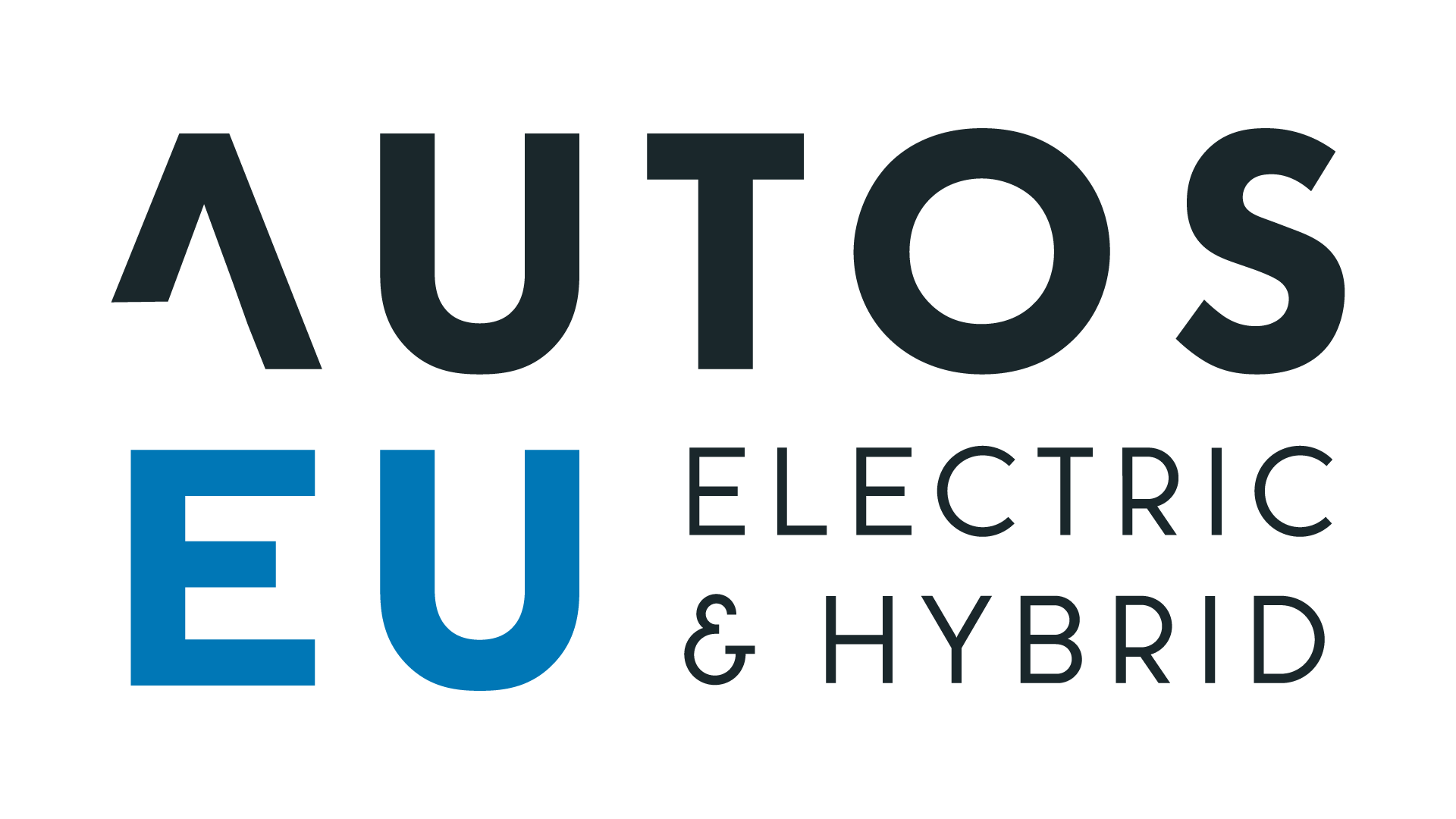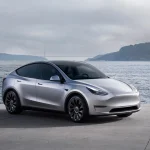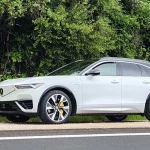
Electric cars as bad as coffee or refrigerators: why we fear new thingsElectric cars as bad as coffee or refrigerators: why we fear new things
Electric cars face opposition not just from entrenched interests that benefit from the use of fossil fuels, but from car buyers as well.
Shoppers continue to express concerns about things like range anxiety and availability of charging stations, among other factors.
Many are simply unfamiliar with electric cars—and thus suspicious of something they do not understand.
DON’T MISS: Chevy Bolt EV electric car for ‘urban’ sales: what does that mean?
Even when a technology or product offers a vast improvement over what came before, it does not automatically follow that widespread adoption will take place.
Often, the general response from the public is quite the opposite, argues Calestous Juma—a professor at Harvard University’s Kennedy School of Government—in his new book, Innovation and Its Enemies: Why People Resist New Technologies.
From coffee to mechanical refrigeration, there has been significant resistance to new things that eventually became everyday fixtures, Juma explained in an interview The Washington Post’s Innovations blog.
2016 Nissan Leaf
The full article includes eight points explaining why technologies or products can meet strong resistance, but overall the issue seems to be not the object itself, but the familiarity of what it is perceived to be displacing.
In the case of coffee, Europeans were slow to adopt because they were used to drinking beer, wine, or tea.
In other words, it doesn’t necessarily take industry lobbying or biased coverage to create stiff opposition to a new product—that opposition can come from the buyers themselves.
ALSO SEE: Getting More Electric Cars On Roads Faster: Recommendations From NRC (Apr 2015)
Sometimes an existing product is an important part of an individual or cultural identity, as with Britons and their now-waning tea time.
That may include modern drivers and the internal-combustion cars that were ingrained in 20th-century American popular culture.
The fear of loss of a cultural identity or a way of life tied to a certain technology can be a powerful motivator against adopting new things, Juma said.
2016 Tesla Model S
He also noted that people tend to be more likely to adopt technologies that increase their mobility, which may actually be working against today’s electric cars to some extent.
Many consumers perceive electric cars as being more limited than gasoline cars, because of their typically shorter range and long charging times.
MORE: Another study confirms electric cars have lower carbon emissions, in Minnesota this time
It’s the task of carmakers and electric-car advocates to educate the public about what the abilities of electric cars truly are.
And as they do so, they can at least take comfort in the fact that electric cars are far from the only innovation in human history to be challenged by skepticism.
[hat tip: Patrick Connor]
_______________________________________________
Follow GreenCarReports on Facebook and Twitter
View original article at: “https://www.greencarreports.com//news/1105512_electric-cars-as-bad-as-coffee-or-refrigerators-why-we-fear-new-things”
Add a comment Cancel reply
Comments (0)
faceless niches
… [Trackback]
[…] Info on that Topic: autoseu.com/electric-cars-as-bad-as-coffee-or-refrigerators-why-we-fear-new-thingselectric-cars-as-bad-as-coffee-or-refrigerators-why-we-fear-new-things/ […]
Categories
- Activism (1)
- Adventure (1)
- Advertising (2)
- Agriculture (1)
- Air pollution (4)
- Air transport (3)
- aluminium (2)
- Amazon (3)
- Animals (1)
- Apple (2)
- Architecture (1)
- Arctic (1)
- Artificial intelligence (1)
- Augmented Reality (1)
- Auto Detailing (1)
- autopilot (1)
- battery (31)
- Best summer holiday destinations 2022 (1)
- Bicycle (1)
- biodiversity (1)
- BMW (2)
- boat (1)
- Bus (1)
- Business (4)
- Buying Guides (1)
- car (7)
- Car industry (18)
- Car News (18)
- car rental (3)
- Car Reviews (4)
- Car sales (6)
- carbon emissions (15)
- carbon footprint (3)
- Carlos Ghosn (1)
- Cars (66)
- Central Europe (1)
- CES (2)
- charging station (11)
- Children (1)
- China (12)
- Citroën (1)
- city (1)
- City transport network (2)
- clean energy (2)
- Climate (1)
- climate change (9)
- Climate crisis (4)
- Climate emergency (2)
- climate protection (2)
- CO2 emissions (39)
- Company (3)
- Competition (1)
- Conscious travel (2)
- Contamination of water (1)
- Copper (2)
- cost of living (2)
- Cuba (1)
- Cuban politics (1)
- Cybertruck (1)
- Cycling (1)
- deforestation (1)
- delivery (3)
- Denmark (2)
- Detroit (1)
- Diesel (4)
- Diesel car (7)
- e-mobility (11)
- e-scooter (2)
- Eco travel (3)
- Eco-friendly (2)
- Ecology (1)
- Economy (1)
- El Niño (1)
- Electric (11,302)
- Electric boats (1)
- electric car (107)
- Electric Cars (499)
- Electricity (5)
- Electricity consumption (3)
- Electricity market (5)
- Elon Musk (21)
- emission (1)
- Emmanuel Macron (1)
- Energy (2)
- Energy low cost (1)
- energy transition (6)
- Entrepreneur (1)
- Environment (5)
- Environment pollution (1)
- Environmental protection (4)
- EU Policy (1)
- EU-China (2)
- Europe (7)
- Europe's energy crisis (1)
- European Commission (3)
- European economy (2)
- European Union (18)
- Euroviews (6)
- Eviction (1)
- EVs (37)
- F1 (1)
- factory (4)
- fake news (1)
- family (2)
- Ferrari (1)
- fertilizer (1)
- fine (penalty) (1)
- fire station service (1)
- flight (1)
- Flying car (4)
- Food security (1)
- Ford (1)
- Formula 1 (2)
- Fossil fuels (14)
- France (39)
- free trade (1)
- Fuel (3)
- Fuel cell electric vehicles FCEV (10)
- fuel crisis (2)
- Fuel Efficiency (3)
- fuel prices (1)
- Funeral (1)
- Gas (1)
- Gas Prices (1)
- gasoline price hike (1)
- German (1)
- Germany (8)
- Giorgia Meloni (1)
- Global warming and climate change (1)
- Good News (1)
- Greece (1)
- green energy (1)
- green new deal (1)
- Green transportation (17)
- Green Week (1)
- greenhouse gas emissions (6)
- Hanoi (19)
- Health (1)
- home (2)
- homelessness (1)
- Housing market (19)
- human rights abuse (1)
- Hybrid (2,283)
- Hybrids (116)
- Hydrogen (2)
- hydrogen vehicle (2)
- IAA Mobility (2)
- Iceland (3)
- incident (1)
- income (1)
- India (2)
- Indonesia (1)
- infrastructure (1)
- innovation (1)
- International relations (1)
- Investment (4)
- iPhone (1)
- Japan (1)
- Jobs (3)
- Joe Biden (4)
- Jubilee (1)
- Lampedusa (1)
- Las Vegas (1)
- lead petrol (2)
- Lithium (13)
- liveable cities (2)
- London (3)
- Luxembourg (1)
- Luxury (2)
- luxury goods (2)
- Luxury lifestyle (2)
- Manufacturing (5)
- Market (1)
- Markets (1)
- meat (1)
- Mercedes-Benz (39)
- Migrants (1)
- minerals (2)
- Mining (5)
- Mitsubishi Motors (1)
- Mobile World Congress (1)
- Mobility (10)
- Mobility Week (2)
- Mobility Week 2021 (1)
- Mobility Week 2023 (5)
- money (3)
- Motorcycling (2)
- Motorsport (1)
- Mountain (1)
- NASA (1)
- nature (2)
- net-zero (2)
- New technologies (6)
- Next Explainers (1)
- Next In data (2)
- Nigeria (1)
- Nissan (3)
- Norway (7)
- Nuclear Energy (1)
- nuclear fusion (1)
- Nuclear power plant (1)
- Odd (1)
- oil industry (1)
- Olaf Scholz (1)
- online shopping (1)
- Oslo (1)
- Paris (1)
- parody (1)
- Petroleum products (3)
- Peugeot (1)
- plastic (1)
- Poland (1)
- Politics (1)
- Pollution (44)
- Power Plant (1)
- prices (1)
- production (1)
- Profits (1)
- Prostitution (1)
- Public transport (4)
- Racing cars (1)
- Racism (1)
- Rail transport (2)
- rats (1)
- Raw material (1)
- Recycling (4)
- Renault (3)
- Renewable energies (6)
- renewable energy (6)
- Reykjavík (1)
- Rishi Sunak (1)
- road (36)
- Road infrastructures (1)
- Road safety (7)
- Road transport (20)
- road trip (1)
- Robot (1)
- Rolls Royce (1)
- Russia (1)
- Russia's invasion of Ukraine (2)
- Sadiq Khan (1)
- safari (1)
- Safety (1)
- Sale (1)
- sales (3)
- Scotland (1)
- self-driving (43)
- Semiconductor (1)
- Shares (1)
- Show (1)
- Silicone (1)
- Software (1)
- Solar energy (2)
- solar power (5)
- Space technology (1)
- Spain (1)
- start-up (3)
- Stock exchange transaction (1)
- Stock market activity (1)
- Stockholm (1)
- Strasbourg (1)
- Students (1)
- Summer Olympics (2)
- Sustainability (7)
- Sustainable city (3)
- Sustainable design (3)
- Sustainable development (1)
- Sustainable innovation (9)
- Sustainable technology (21)
- Sustainable tourism (4)
- Sweden (2)
- Tata Motors (2)
- Tax (37)
- Taxes (2)
- Taxi (1)
- Technology (55)
- Tesla (73)
- The Boring company (1)
- Tokyo Olympic Games 2020 (1)
- Toyota (4)
- trade (3)
- traffic (1)
- Trains (2)
- Transport (11)
- transportation (3)
- Travel destinations (1)
- Tunnel (1)
- Twitter (3)
- UBER (1)
- Ukraine war (1)
- Uncategorized (6)
- United Kingdom (5)
- United States (6)
- urban planning (2)
- Ursula von der Leyen (3)
- US politics (1)
- USA (1)
- vegan (1)
- vehicle (7)
- Video (4)
- Vietnam (19)
- Volkswagen (3)
- Volvo (2)
- waste (1)
- waste disposal (1)
- Water (1)
- Water resources (1)
- White House (1)
- wind energy (1)
- Wind turbine (1)
- Winter (2)
- work conditions (1)
- World Travel Market (1)
- Xiaomi (1)
Recent Posts
About us

Popular Tags
Related posts


Volvo EX30 in the test: Really a premium car at a volume price?

VW ID.7: Estate is not called Variant... It's a Tourer







